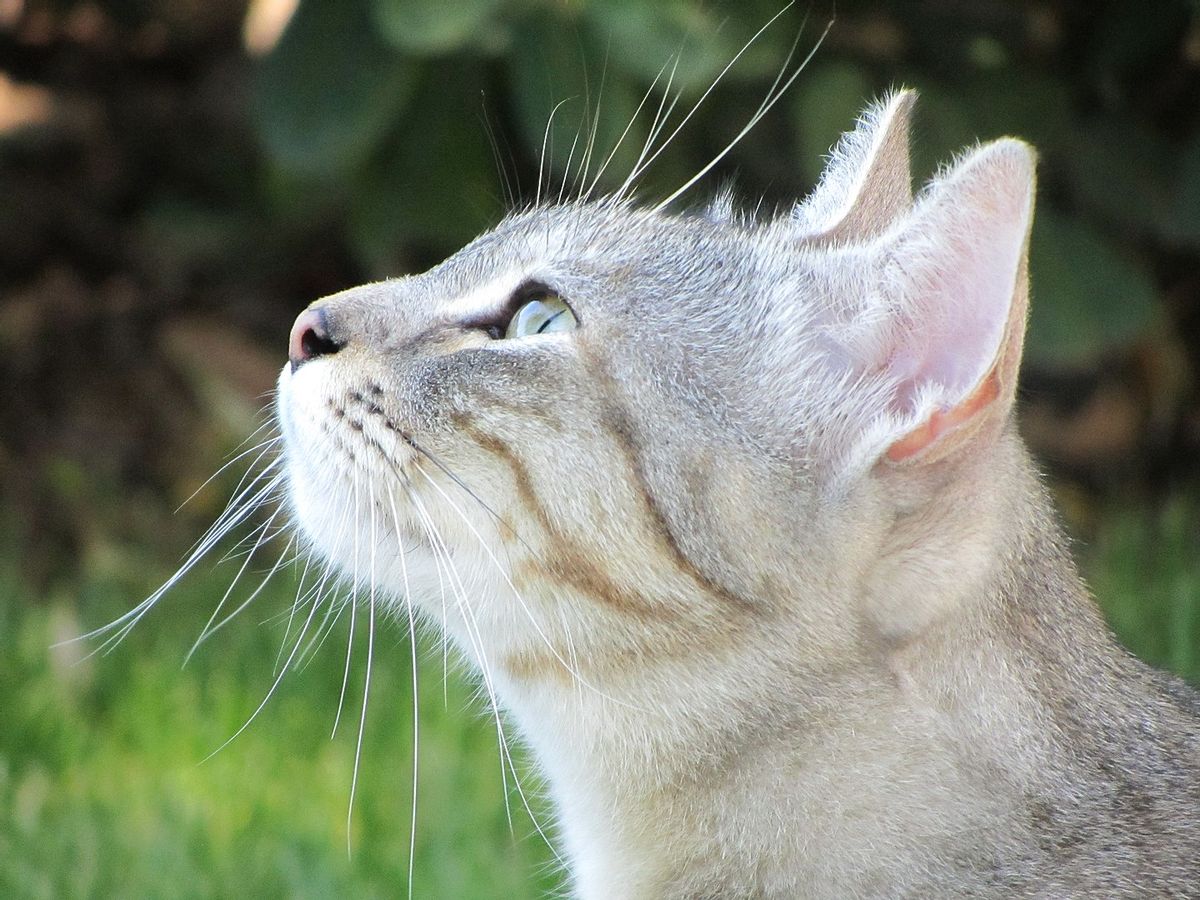If you have a furry feline at home, there is a very small possibility they could catch and transmit COVID-19. Since the outbreak's start, we at Snopes have covered questions about whether animals can get and spread the coronavirus. In late June 2022, the first reported case of a person getting COVID-19 from a cat raised the issue again.
We’ve learned that, while cats have the ability to transmit the virus, it is extremely rare — so don't treat your beloved pet like a bioweapon. According to the Centers for Disease Control and Prevention (CDC), “There is no evidence that animals play a significant role in spreading SARS-CoV-2, the virus that causes COVID-19, to people.” The CDC also says:
There have been a few reports of infected mammalian animals spreading the virus to people during close contact, but this is rare. These cases include farmed mink in Europe and the United States, white-tailed deer in Canada, pet hamsters in Hong Kong, and a cat in Thailand. In most of these cases, the animals were known to be first infected by a person who had COVID-19.
It’s important to remember that people are much more likely to get COVID-19 from other people than from animals. There is no need to euthanize or otherwise harm animals infected with SARS-CoV-2.
There is a possibility that the virus could infect animals, mutate, and a new strain could spread back to people and then among people (called spillback). More studies and surveillance are needed to track variants and mutations and to understand how SARS-CoV-2 spreads between people and animals.
The only reported case of a cat-to-human infection occurred in Thailand and was reported in a June 2022 study. That study was published in the peer-reviewed, CDC-run journal, Emerging Infectious Diseases. Sarunyou Chusri, an infectious-disease researcher and physician at Prince of Songkla University in southern Thailand, told the science journal Nature the case was discovered by accident.
In August 2021, a father and son were infected and isolated in a ward at the university hospital. Their cat had also tested positive, and, while being swabbed, sneezed in the veterinary surgeon’s face. The surgeon was wearing a face mask and gloves but had no eye protection. A few days later, she developed symptoms and tested positive for COVID-19. Since none of her other contacts developed COVID-19, the researchers believed she was infected by the cat. She even tested positive for the same variant that the cat and its owners had.
The study concluded:
In summary, we have provided evidence that cats can transmit the SARS-CoV-2 infection to humans. However, the incidence of this transmission method is relatively uncommon because of the short (median 5 days) duration of cats shedding viable viruses. Nevertheless, to prevent transmission of SARS-CoV-2 from humans to cat, persons with suspected or confirmed COVID-19 should refrain from contact with their cat. Eye protection as part of the standard personal protection is advisable for caregivers during close interactions with cats suspected to be infected.
The CDC also maintains, “There is no evidence that the virus can spread to people from the skin, fur, or hair of pets.”
According to a May 2020 report in the National Institute of Health's National Library of Medicine, cats appear to be "highly susceptible to the virus," unlike dogs. Between April 2020 and July 2022 in the U.S., 117 domestic cats tested positive for COVID-19 compared to 109 dogs, according to the U.S. Department of Agriculture. And those numbers only included cases that were reported.
It is also very rare for cats to become seriously ill from the disease, according to the CDC. “Pets infected with this virus may or may not get sick. Of the pets that have gotten sick, most only had mild illness and fully recovered. Serious illness in pets is extremely rare.”
However, we learned of a few cases in which cats did become very ill. The May 2020 report detailed a case in Belgium where a cat "living with its COVID-19 owner became clinically ill." The cat exhibited "respiratory problems accompanied by diarrhea and vomiting." COVID-19 was detected in the "feces and gastric vomitus of the cat, and that sequence was identical to that of the cat owner, indicating the occurrence of reverse-zoonotic transmission of SARS-CoV-2 from human to animal."
Furthermore, an April 2021 study published in the peer-reviewed Veterinary Record detailed an instance where a 4-month old kitten contracted COVID-19 from its owner, developed severe symptoms and was euthanized. "The kitten was presented to its veterinary surgeon [...] with dyspnoea, and physical examination revealed signs of increased respiratory effort, increased respiratory rate and harsh lung sounds."
Catching COVID-19 from a cat is highly unlikely — but not impossible, considering the Thailand case. Also, while cats appear to be susceptible to COVID, severe cases among them are rare, and there have been few known deaths. Pet owners should keep in mind the CDC's guidelines: Humans are more likely to contract COVID from other humans than from animals, including pets.

